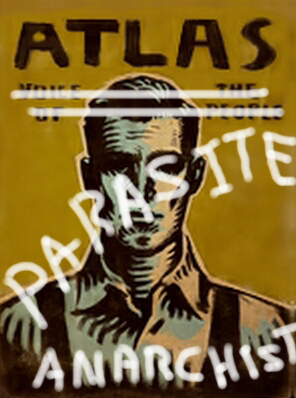Are Atlas And Fontaine The Same Person?

The world of video games is filled with intricate narratives, complex characters, and surprising twists that keep players engaged. One of the most intriguing mysteries in the realm of video gaming is the relationship between Atlas and Fontaine from the critically acclaimed series BioShock. As players traverse the underwater city of Rapture, they encounter a story rich in deception, morality, and the human condition. This article delves into the connection between these two pivotal characters, exploring their identities, motivations, and the overarching themes they represent.
Quick Info Table: Atlas vs. Fontaine
| Character | Identity | Key Traits | Role in BioShock |
|---|---|---|---|
| Atlas | Alias of Frank Fontaine | Charismatic, manipulative | Guides the player through Rapture |
| Fontaine | Original identity of Atlas | Ruthless, power-hungry | Antagonist and businessman |
The Facade of Atlas
Who is Atlas?
Atlas emerges early in BioShock as a seemingly benevolent figure. He presents himself as a guide and ally to the player, helping them navigate the dangers of Rapture. With his thick Irish accent and compelling rhetoric, he embodies the voice of the oppressed citizens of Rapture, appealing to the player's sense of justice.
Characteristics and Motivations
Atlas's charm and cunning make him a persuasive character. He often speaks of the need to overthrow the corrupt elite, specifically targeting Andrew Ryan, the architect of Rapture. His motivations initially appear noble; he claims to want to liberate the citizens trapped under Ryan's authoritarian regime. However, as the story unfolds, players begin to question the authenticity of his intentions.
The Real Frank Fontaine
Unveiling Fontaine's True Nature
Frank Fontaine, the true identity of Atlas, is revealed to be a complex antagonist. Unlike Atlas, Fontaine is ruthless and driven by his desire for power and control. He is a businessman who thrives in the chaos of Rapture, manipulating events to his advantage. Fontaine's identity serves as a critique of capitalism, showcasing the darker side of ambition and greed.
Fontaine's Manipulative Tactics
Fontaine's manipulative nature is evident in his dealings with the citizens of Rapture. He exploits the vulnerabilities of those around him, using them as pawns in his quest for dominance. This manipulation extends to the player, who initially believes they are aligned with Atlas but ultimately discovers the truth about Fontaine's deceptive nature.
The Duality of Identity
The Intersection of Atlas and Fontaine
The relationship between Atlas and Fontaine raises significant questions about identity and morality. Both characters represent different facets of the same person, illustrating the duality of human nature. Atlas embodies hope and rebellion, while Fontaine represents ambition and cruelty. This duality forces players to confront their own ethical beliefs as they navigate the moral complexities of the game.
Themes of Deception and Trust
The twist that Atlas is, in fact, Fontaine highlights themes of deception and trust in BioShock. Players are led to believe in Atlas's cause, only to find that their ally is also their adversary. This twist not only serves as a pivotal moment in the game but also challenges players to reconsider their loyalties and assumptions about good and evil.
The Impact on Gameplay
Player Experience and Emotional Engagement
The revelation of Atlas’s true identity significantly impacts player experience. Gamers invest emotionally in Atlas as a character, and the betrayal of trust creates a profound sense of shock. This emotional engagement is a hallmark of BioShock, enhancing the narrative's depth and resonance. Players are left to grapple with the implications of their choices and the nature of the characters they interact with.
Moral Choices and Consequences
In addition to the narrative twist, the game employs moral choices that further complicate the player’s relationship with Atlas and Fontaine. Decisions made throughout the game can lead to varying outcomes, echoing the complexities of morality. These choices often reflect the player’s own values, adding layers of meaning to the narrative.
Conclusion: The Legacy of Atlas and Fontaine
In conclusion, Atlas and Fontaine are not merely characters in a video game; they represent the intricate dance between hope and despair, trust and betrayal. Their intertwined identities challenge players to reflect on their own moral compass and the consequences of their choices. The depth of their characterization is a testament to BioShock’s narrative brilliance, leaving an indelible mark on the gaming landscape.
As players continue to explore the depths of Rapture, the question remains: Are we, too, capable of wearing multiple masks, embodying different identities based on our desires and aspirations? The story of Atlas and Fontaine serves as a powerful reminder of the complexities of human nature and the moral dilemmas we face in our own lives.



Comments ()